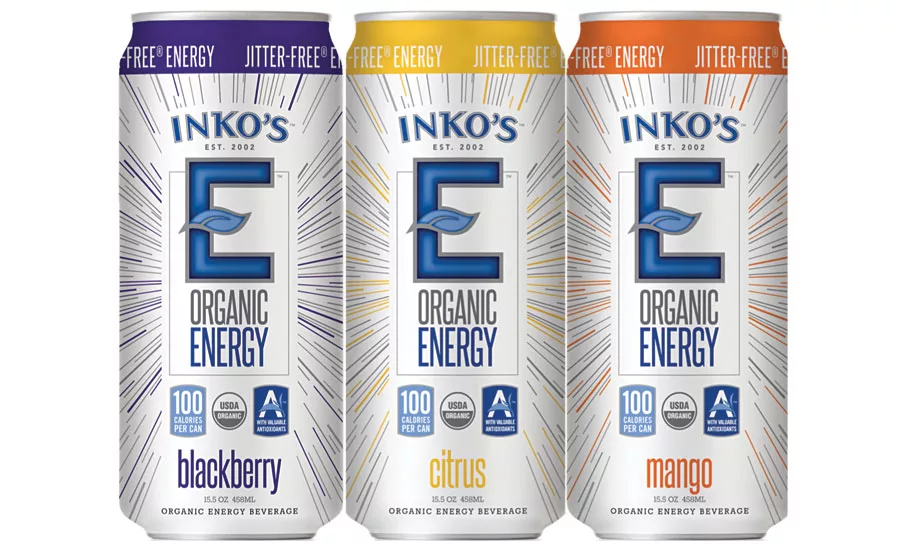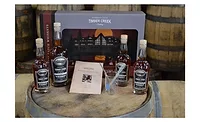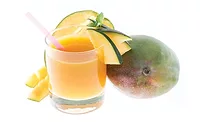Botanicals gain favor for clean label, functional benefits
Functional ingredients proliferate across beverage categories



As the number of label-reading consumers grows exponentially, beverage-makers that are looking to appeal to these consumers are launching botanical-based beverages in increasing numbers across various categories.
“We have seen the phenomenal rise of plant-based milk alternatives, the growing popularity of sparkling botanical beverages, and have even had a few beer manufacturers request botanicals, not only for their flavor, but also their nutritional benefits,” notes Rikka Cornelia, product manager at Rancho Dominguez, Calif.-based BI Nutraceuticals.
Al Murphy and Devon Edmonson, vice president of sales and marketing coordinator, respectively, for Mother Murphy’s Laboratories Inc., Greensboro, N.C., highlight that botanicals are increasingly being utilized in the alcohol market. “There is a push for more herbs and less sugars, especially among mixologists and craft cocktail makers,” Murphy says. “Trends are driving bitters, and this is also trending within the beer category with hops in IPAs. … I see a movement to more uses of botanicals, especially in craft cocktails, spirits and possibly the beer category.”
Edmonson adds, “Cocktails and craft beers tend to try out novel ingredients first, and botanicals can offer fresh tastes and a more functional alcohol option.”
While these categories are seeing an emergence in the utilization of botanicals, other categories have an established base from which they’re growing, experts note. However, some categories still are left untapped.
“Botanicals will continue to make their way into even more beverage categories,” says Ilana Orlofsky, marketing coordinator at Imbibe, Niles, Ill. “Tea and coffee, especially, will act as platforms for innovation with botanicals. Consumers will become better versed in some of the benefits associated with botanicals and will also seek out more interesting and exotic flavor profiles. As sparkling water takes main stage, there will also be more herbs and botanicals in this category, as they will help capture the health-centric consumers.”
Answering a call
Experts offer ample reasons to explain why consumers are demanding botanical and plant-based beverages. In addition to a plethora of nutritional and functional benefits, botanicals satisfy consumer demand for clean-label food and beverage products.
“Their rising popularity is due to the mainstream trend of clean label and consumers taking the ‘back-to-the-basics’ approach,’” Cornelia says.
But clean label is just one micro trend within the overarching macro trend of health and wellness, which has impacted the entire beverage industry. “The health-and-wellness trend has had a major effect on the use of botanicals in beverages as consumers want more plant-based and functional products,” Mother Murphy’s Edmonson explains. “Consumers’ desire for clean labels with only ingredients [that] they can pronounce and know is also causing increases in the use of herbs and botanicals as these types of ingredients are typically from natural sources.”
BI Nutraceuticals’ Vice President of Marketing Randal Kreienbrink also highlights this trend, noting that consumers are paying more attention to what ingredients are in their foods and beverages.
“Consumers don’t want chemicals, they don’t want a lot of ingredients they can’t pronounce, they’re worried about carcinogens being put into products [and] they’re worried about pesticides. They’re just looking more and more for plant products that, again, have the clean label,” he explains. “… I think they’re actually getting much more comfortable with plant-based products and less comfortable with the old standby.”
Beyond health and wellness, experts say that millennials, and their inherent flavor curiosity and desire to explore, also have contributed to a growing demand for herbs and botanicals. “Millennials are adventurous consumers, and they’re helping drive innovation as well as [the] acceptance of herbs and botanicals as ingredients in beverages,” Imbibe’s Orlofsky says. “In addition to adding complexity to flavor profiles without added calories, many herbs and botanicals are associated with [the] health benefits that these consumers seek.”
BI Nutraceuticals’ Cornelia adds: “Beyond the better-for-you trend, consumers are also looking for unique and sophisticated flavor experiences in the products they buy. Expanded technology and travel has increased consumer exposure and demand for international flavors, which many botanicals and spices can provide.”
Going beyond flavor
As consumers’ flavor preferences and demands change, beverage-makers can utilize botanicals for a variety of functionalities. “The role [botanicals] play in beverages has changed throughout the years,” Cornelia explains. “Just a decade ago, formulators primarily used botanicals for their flavor. Within the last decade, and particularly the last five years, formulators started utilizing botanicals for their health and nutritional benefits. Now, we are seeing an increasing amount of botanicals being used for their functional benefits, like as a natural color, emulsifier [or] sweetener.”
She adds that many botanicals offer a combination of nutritional and functional benefits. “… Not only do they contribute to overall health, but they also help with flavor (cinnamon and ginger) and color (turmeric),” she says. “Beet root powder, an extremely popular ingredient for sports nutrition, can also be used as a natural color alternative to Red 40. BI’s Faba Bean protein concentrate, typically touted for its 80 percent protein content, is now being sought after as an emulsifier.”
When it comes to nutritional functionality, BI Nutraceuticals’ Kreienbrink adds that botanicals can offer fiber fortification for beverages. He says that psyllium often is used in beverages for its fiber content, but chia seeds and fruit- or vegetable-based fibers, like orange peel fiber or carrot fiber, also can be solutions.
Additionally, antioxidants, improved cognitive function, immune support, anti-inflammatory properties, energy, stress-relief or calming benefits all can be achieved via botanicals, Mother Murphy’s Edmonson says.
Various botanical segments are gaining prevalence in beverage formulations for their functional properties, among them are adaptogenic botanicals, which have experienced unprecedented growth, BI Nutraceuticals' Cornelia says.
“Adaptogenic botanicals have been used for thousands of years to enable the body to adapt to stress — emotionally, mentally and physically,” she explains. “Known adaptogenic botanicals include, but are not limited to, ashwagandha, maca and even several commonly used spices. Three such spices gaining much attention for their contributions to health and increasingly [are] being incorporated into beverages are cinnamon, ginger and turmeric.”
Kreienbrink adds that energy-based botanicals continue to be popular. “The energy-based botanicals and herbs are hot because everyone, whether they’re drinking their coffee or their teas, they’re looking for getting that energy,” he says. “Things like guaraná and guayusa and yerba maté are three different herbs/botanicals that are naturally packed with caffeine.”
Additionally, hot-and-spicy botanicals are gaining in popularity within beverage formulations, Imbibe’s Orlofsky says. “Cayenne is a popular capsaicin-rich spice in beverages, but more recently, serrano, habanero, jalapeño and even ghost peppers have been highlighted as ingredients in new beverage launches.”
Other popular herbs and botanicals include mint, basil, cilantro, elderflower, hibiscus, matcha, ginger, rose, lavender, ginseng, chamomile and lemongrass, according to Mother Murphy’s Edmonson.
Finicky formulations
Although botanicals offer several appealing traits, they also have their fair share of challenges. The natural aspect that makes these ingredients appealing to consumers also makes them troublesome to formulators, experts say.
For example, Mother Murphy’s Murphy and
BI Nutraceuticals’ Cornelia both note that the natural origins of botanicals can make it difficult to achieve consistency from batch to batch.
“Due to this, the attributes of botanical ingredients can differ from lot to lot because of the many factors that affect harvest, like region, transportation, weather and much more,” Cornelia explains. “… [S]ometimes the functionality of a natural botanical compared to a synthetic ingredient can be somewhat different; this can affect use level, shelf life and even the [type of] packaging to use. Beet root powder as a natural alternative to Red 40 is a great example; formulators will have to use more with beet root powder, and, thus, will have to take shelf life, pH and processing into consideration.”
Although some botanicals offer accepted, or even desired, flavors, many others can result in offnotes. “The downside to being more natural, closer to earth, is a lot of these products have very bitter or off-flavor notes that people don’t like,” Kreienbrink says. “You have to overcome them with maybe matching them with another, more pleasant flavor profile or just adding less and increasing the dose. The biggest challenge is probably in the flavors. We have to work with the flavor profiles to try to make it a little more palatable and accessible.”
Mother Murphy’s Edmonson suggests utilizing complementary flavors that, when blended with botanicals, will create a pleasant end-flavor profile. “Fruit flavors tend to mix well with botanicals,” she says. “Consumers are also already familiar with fruits, so a fruit and botanical flavor combination will make them feel more comfortable [when] purchasing a botanical product.”
To overcome some of the other challenges, it’s essential to keep in mind what the product is trying to accomplish, Kreienbrink says.
“If [the beverage-maker] is looking for a flavor or texture, or other functional properties as far as nutrition, such as adding a prebiotic or antioxidant [or] even making something like healthy heart or healthy gut, you need to make sure of the amount [that] you put into the beverage when you’re formulating because you would like to actually make something that isn’t going to be just a flash,” he says. “You want it to be somewhat ethical; you want it somewhat efficacious, so you want to put enough in to make it do something.”
Additionally, solubility should be a key consideration when selecting botanical ingredients for a formulation. “For most beverages, extracts or very small amounts of powders are recommended; water-soluble extracts are best to utilize,” Cornelia says. “However, for thicker and cloudier beverages, powders can occasionally be properly incorporated since thickening agents can suspend the powder, and cloudy beverages can conceal that the powder is not completely soluble.”
Looking for a reprint of this article?
From high-res PDFs to custom plaques, order your copy today!





